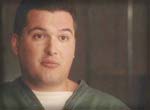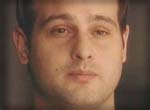




Dear FRONTLINE,
One life falling between the cracks of our justice system is too many....Judgment should never be taken out of the judges hands by having any sentence be mandatory.
Cheryl B
cincinnati, OH
Dear FRONTLINE,
Dear Ms. Bikel,
Your documentary provides so much for a mind and heart to wrap around. Thank you for bringing to bear the core issues you address in your documentary regarding life without parole for juveniles. It continues to haunt me, as well it should.
It seems so obvious that forgiveness, understanding, faith in the essential good nature of these young people, effective rehabilitation; some form of protection for all of us that precludes vengeance and politics, and irreversible sentences; some balance restored so that neither victim nor offender are indulged in their dark side, are the order of the day.
As a Court Recorder, I have listened much over the past 10 years, and heartbreakng as it is, it has become my current understandng that we must establish more healing priorities by demonstrating their effectiveness; and in the meantime we must protect the mainstream society by separating some of us from the rest of us until we can be sure they won't hurt us.
I would LOVE to see you generate another documentary about the success stories through rehabilitation that you have seen. Maybe they will help alleviate some of the irrational fear and anger that feed the current system.
Judy Cassidy
Stevensville, MI
Dear FRONTLINE,
"Hard cases make bad law." These were hard cases that couldn't be typical of the "worst of the worst"; such typical cases are what should be expected. Neither the worst nor the typical cases were presented, of either completely innocent victims or of perpetrators who are at the extreme that requires that society be protected from them. Only the soft cases at the sympathetic extreme were presented. Surely they cannot be typical. I began watching this program knowing that it would be unbalanced. In the midst, I admit that I was swayed by the personal stories of the prisoners, and I do agree that Colorado needs to clean up its act. At the same time I noted the sweeping stereotypic statements that especially framed the discussion at the opening and closing summations. I don't believe in capital punishment and don't claim to know how to resolve all the inconsistencies. I have never been a family member or friend either the victim of a serious crime or of the perpetrator of one. But in failing to show anything but one extreme, Frontline isn't helping the situation. If Frontline were concerned to help those cases that call for review, that should have been the format of the program, a set of personal interest stories. Attempting a mixed-use format, mixing the personal with the policy, results in a wasted, failed effort. Those who started out in sympathy primarily with perpetrators wouldn't get anything from Frontline to make them more sympathetic with victims, and victims couldn't be swayed to become forgiving -- especially when their viewpoint isn't presented and they are stereotypically portrayed as extremists. Better luck next time, Frontline.
William Keevers
Sacramento, California
Dear FRONTLINE,
This story showed the sadness on both sides of murder. Of course we feel the horror and sorror of the families of the victims. IN FACT, I really feel sorry for the mother of the boy who was killed when he went to buy a gun, but not for the obvious reason. She is so consumes with hatred it was hard to hear her. She is allowing her hatred to lead her actions. It could have so easily gone the other way, Her son was there, breaking the law to buy a gun. What was that gun to be used for? She said he was buying it for his cousin. If his cousin had used it to commit a murder, would her son not be an accessory to that crime because he provided the gun? What if he had gotten the gun that night and it had accidently discharged and killed Trevor would she feel the same?She could have easily been in the shoes of Trevor's family. I do think there should be consequences for causing the loss of life, but kids should not be sentenced to life without parole. It benefits no one. This woman needs to seek help to deal with her hatred as it won't hurt Trevor near as much as it will hurt her.
Several of the boys featured seem to have come from terrible home lives. Their crime was against society, but what was done to them was a crime against nature. The devastation of child abuse cannot be known by those who never experienced it, especially from a parent. Home is supposed to be our sanctuary from the world. It is a gross wrong against humanity when this is taken away from children.
In the face of all the hurts and wrongs of this world, we need to seek to have compassion for all the victims. When we lose that we become a hardened society that breeds more horrific acts.
It took some time but I did forgive the killer of my daughter.
Huntsville, Al
Dear FRONTLINE,
Having watched the program and then read through many of the comments, I find the lack of compassion of some people utterly amazing, but more amazing still is their willingness to presume the goverment prosecution got it right. It has always amazed me that the same people who howl and scream that there is too much goverment will turn around and give that same goverment their complete trust when deciding whether to lock a 15 year old up in prison for life.
In particular, I find the comments to the effect of "what if it was your son or uncle who was killed?" I'd just like to turn the question back on them, "but what if it was your son or daughter or uncle who was being sexually abused? Would you not be proud to have them go down trying to defend themselves?" And what about the participants in the crimes that get little or no prison time because they testify against others? Neither their questions nor mine have easy answers; I just pray I don't have to ever answer any of them myself.
Of the five, Erik Jensen is the one who truely stands out. None of us really knows what happened; but, it appears that Mr. Jensen was put in a situation not of his own making. It was easily the most powerful of the five stories because it compels one to wonder "how would I handle being put in that situation." What would you do if a close friend snapped and did something horrible? Can anyone honestly say that their first reaction wouldn't be to help out your friend? I'm not sure his story really belonged with the other four. In fact, it is really a distraction from the central question posed. Can you really use his case to question whether Life Without Parole should be administered to minors when he shouldn't have even recieved that sentance, even if he had been an adult?
One aspect that wasn't covered in this story is the role the prison industry has played in instituting mandatory minimum sentencing. There are people making a lot of money building and maintaining prisons and they have been able to distort our justice system by lobbying state legislators and by conducting manipulative advertising campaigns to promote state-level initiatives to create demand for their services. I'm sure that story could fill up an entire Frontline episode.
Denis Dooley
Scappoose, Oregon
Dear FRONTLINE,
I would like to see a second program where Frontline would choose five cases of children who received "Life Without Parole" that were from the other end of the Spectrum. It should be much easier. I believe that the justice system generally works well. Any man made system is subject to error and these cases highlight that. Still, these five cases represent only .0025 percent of the total. What about the other 99.99%? Injustice always makes a better story than justice that works.
Our prison system does not now and never has focused on rehabilitation. Prison is protecton, punishment and hopefully a deterrent. The only thing that prison does is keep the rest of us safe from the some of the predators in our society. I am always sorry to see injustice as shown in this story, but I feel that the majority of the time the system works and works well.
Richard Arnold
Waxahachie, Texas
Dear FRONTLINE,
One respondent asks how "experts" would respond if it were their family member who had been murdered. But it is only and precisely by avoiding such passions that justice, whatever shape it ultimately takes, can prevail. The victim's perspective can really only have one response -- retribution -- as we saw on the program and in the letters posted here. Retribution is certainly a part of justice, but surely not all of it.
By global standards, our system of criminal punishments is absurdly harsh. Tonight we saw part of the reason why this is so.
Eugene, Oregon
Dear FRONTLINE,
Dear Frontline: Your show tonight just brings to light an even greater problem in the United States. When I attended college in the 1970s, studying criminal justice, we studied the concept ofrehabilitation as one of the primary focuses of our prison system as it existed at that time. This approach only made sense in a civilized society that should be willing to recognize that people do make mistakes and can be rehabilitated. Unfortunately, since then we have seen our legislature and court system taken over by people who simply do not want the U.S. to move on with the restof the civilized world toward a criminal justice system designed more to rehabilitate and hopefully prevent future crime. What has happened is that today we let our desire for vengeanceoverrule any sense of justice, resulting in such stupid ideas as treating a 14-year-olds as adults and three strike laws. The result is we send people who steal pizza and kids who simply have no real understanding of the consequences of their actions to prison for life. While it may make the victims of crime feel better, and may make our politicians and district attorneys appear tough on crime, this is not doing a thing to prevent crime and is simply supporting our latest strange industry, the prison industry, complete with lobbyists that object to more rational laws and sentences not because they do not make sense, but because law enforcement and prisons create jobs and make money under our current system. We have simply created a new crime industrial complex that like the military-industrial complex that does little more than perpetuate crime and put more and more of our citizens in prison with no hope they will ever be made into productive members of society.
Stephen Lopez
San Diego, CA
Dear FRONTLINE,
Dear FRONTLINE:It seems to me that many of your viewers would rather see ALL young offenders get life than to judge each case on its merits. To compare the boys who planned and carried out the terrible carnage at Columbine to the two boys profiled in your program that had been victims of parental abuse is absurd. I would be willing to bet that every one of those angry respondents, at one time or another has said something to the effect of 'I can't believe how dumb I was when I was a teenager' or 'If I only knew then what I know now...' When I look back at the stupid, reckless things I and my friends did while teenagers (and even into our early twenties) I am amazed I survived my own youth.
People all too soon forget what it was like to be young, naive, and confused - trying to forge a personality distinct from your parents and coping with the ever increasing demands of adulthood. Yes, it's terrible to lose a loved one, and I'm not saying that all teenaged offenders should be given a slap on the wrist, but where is the justice in sentencing them all to life without parole? These people say 'How would you feel if it happened to you?' but never ask themselves the same question. What if it was their son being locked up for the rest of his life? As it was said in your program, there is a difference between vengeance and justice. It's unfortunate that so many in our society refuse to see it.
Lenette Barker
corona, ca
Dear FRONTLINE,
The failure to change these laws is a matter of legislative cowardice of the most craven sort. We expect kids who are being mentally and physically tormented to have some innate notion of right and wrong. From where? If the parent is the abuser, what lessons do we expect them to teach? And what of the state, who failed to protect its children before the tragedies occurred? I suppose that would have been too expensive with all the money funneled into keeping the jails full. And how can Supermax prisons possibly be considered anything but torture? As a society, we can do justice or we can do vengeance, but we can't do both.
Michelle Ferry
Huntington Beach, CA
Dear FRONTLINE,
Thank you for shedding light on this horrible and tragic situation. I am a Master of Social Work with 30 years experience in health and mental health, including extensive work with abused children. I am appalled given the evidence of severe abuse in several of these cases that this was ignored and that society is so ignorant about the affects of severe abuse particularly on developing children. As stated in the film it is bizarre that parents who kill and abuse their children are given the most lenient sentences in the justice system (or none at all) and children who kill their parents the harshest. We seem to have developed some understanding of women who are long term victims of domestic violence by their partners and who murder them- with lesser sentences given our knowledge of abuse- why do we have no understanding for children who are even more helpless and vulnerable...Given the number of adult murderers who are out of jail in several years I just cannot fathom the sentences of these 2,000 plus children whether or not abuse is involved.
Albuquerque, NM
Dear FRONTLINE,
Im a 49 year old male who has never killed anyone, but ive spent time in prison with kids who have. Ive had problems dealing with life and issues as a kid and paid dearly for my consequences with 16 years of my life inside.
Kids arent able at a young age to understand the consequences of there actions. I am not saying they should not do time for there crimes, they should, but not the rest of there lifes. In the early 70's, I could go out and get in a fight and go to court, pay a fine and be done with it. Today in Idaho I would do five years for that fight. The prison system is all about revenge and politics and money.
Its not about rehabilitation as it should be. I dont think anyone is born a bad seed, we are all made in the image of God. Put a kid in prison for life is just sick and wrong, we are no better off than in the stone ages at this point in life. I feel for both sides in this and am deeply saddend to see that as a society we have never grown up. Vengence is mine sayeth the courts.
boise, id
Dear FRONTLINE,
I think that the laws on life sentences for teenagers is circumstantial. I knew Trevor P. Jones personally, and not a day goes by that I don't think about the injustice that has happened in his situation. I knew the real Trevor. The real Trevor didn't have the mentallity to physically hurt anyone. I think these laws depend on the situation. These cases that were on Frontline are situations that require a much lesser sentence than life without parole. I understand the issues of justice, and in these given situations justice was not served. I bet my life if Trevor was given another chance he would offer something positve in society. Trevor was a typical teenager. I trusted him, he was a good person, and friend. I pray for him, and his family that one day, he will have a second chance. I believe his punishment for the crime has been served.
Sarah Driggs
Aurora, Colorado
Dear FRONTLINE,
From our website www.IllinoisVictims.org
I am a victims' family member of a JLWOP triple murder case in Illinois.
I welcome dialogue with all interested in the issue of JLWOP, and I understand the nature of polemics and advocacy - that being "one sided" is part of making a case and generating discussion. I do not object in and of itself to a documentary film being "one-sided", as this film clearly was.
However, mis-information, shallow stereotypes, and unrepresentatively narrow cases and participants do not enhance discussion - they only further misunderstanding.
If we accept the facts presented in the documentary at face value, several, though not all of the cases, seem to be cases of overly harsh sentencing or outright miscarriages of justice. I strongly urge the entirety of the Colorado Criminal Justice system to address these and any other miscarriages of justice, while working diligently to inform the victims and their families in the said cases, and to empower their voices and to provide significant support to them in whatever ways will help them to achieve the best possible outcome.
But I do have serious questions and concerns about several aspects of this Frontline episode.
There is only one victims' family portrayed in the documentary - they are portrayed as vengeful, harsh, unforgiving, polarizing, and completely unsympathetic. They are never shown as crying, only the offenders and their families are shown as having any feelings. The victims' family member, a mother of a murdered son, is shown as being sarcastic at times, even laughing. It was a most negatively biased portrayal and we offer our strongest objections to the filmmaker, and to PBS for this aspect of the film. One story implicitly denounces Restorative Justice principles, without ever naming them, by labeling the expressions of remorse from an accused offender that were offered to the victims' family, who then shared it with the Prosecution in the case, as the worst legal development that could ever happen to an offender. Restorative Justice principles remain our best hope as a society for any kind of comprehensive refrom of our criminal justice system. There are painstaking descriptions of the "horrors" of the prison life for the offenders, but there are no descriptions of the suffering of victims in the documentary. Not a single one. Victims family members are portrayed as being politically powerful only for the purpose of harshness and vengefulness against the offenders. There are no even slight references to victims who work in Restorative Justice, victim offender mediation, prison reform and human rights advocacy, as I do. They are painted with one brush - one of an obstructionist, angry, and unsympathetic group that always wants the worst punishment possible for the offenders. This stereotype of victims' family members is not even close to being accurate. Victims, like all other groups, are not monolithic. And victims are, remember, innocent by definition and the first and worst recipients of wrongdoing and criminal behavior. Offenders are consistently referred to as kids and children instead of teenagers, youths, juveniles, or adolescents. I believe this is a manipulative and inaccurate propaganda term. While I accept the fact that they are not fully adults, (we all know many adults who are not "fully adult" as well) to call a 17 year old a child, as opposed to those more accurate term, does the discussion a real injustice. Most of the stories portrayed in the film persuasively make the case that unduly harsh sentencing was likely handed down for those offenders. But the selection of cases was obviously made for those most designed to communicate the message of the filmmakers. We have questions about the forty other JLWOP cases in the state that were not selected for this film. Could the filmmaker have chosen even one example of an offender who remains so dangerous that the general public would easily agree that a life behind bars is the proper disposition for that offender? We suspect that they could have, but clearly did not. Adolescent brain development is briefly referred to as if it were an indisputable mitigating factor. But there is no treatment of the broadly complex national discussion on the comprehensive psychological and developmental picture with regards to the issue of culpability. It was treated as fact rather than the inexact science and highly individualized manifestation that it is. There was no reference to the fact that of the over 2000 cases of JLWOP in the nation, while there are clear miscarriages of justice in this and many other sentences across our national criminal justice system, significant numbers of criminal cases are clear and absolutely unmitigated wrong-doing on the part of the offender. The documentary did not make the slightest reference to the fact that there was even the possibility that one of these sentences were "just" or appropriate, or that there are incarcerated offenders who are completely and defiantly irredeemable, such as chronic sociopaths and predatory mentalities. That these offenders were caught early in their criminal careers is laudable. They are off the streets and cannot hurt other innocent people as they would be sure to do. It is wrong to lump these inmates in with others who we agree are more hopeful cases. And, it is not logical to use a small sample of cases to generalize about the entire sentence of life without parole. This is logically and statistically moving in the wrong direction. To prove that LWOP were an unjust sentence as a whole, the widest possible range of sentences would need to be covered, and all situations would need to be examined, whether they fit the filmmakers' thesis, or not. The filmmaker has not demonstrated a fundamental flaw in the sentence itself, only in the individual sentences in these rather limited cases. As a viewer, I did not at all see or understand the leap that the film took from the specific to the general. And I object to the sweeping language used especially early in the film that most juvenile murderers are somehow understandably lashing out to brutal oppression in their young lives and that this is typical for these cases.
So I invite PBS, Frontline, the Pendulum Foundation, and the filmmaker to enter into a more balanced dialogue, and one that treats victims with all the depth and sympathy and complexity that they so richly deserve. The presentation of victims and offenders in this program was so biased and hurtful to people already hurting deeply, that I am considering asking equal time of PBS, a station whose programming we usually find to be above reproach.
Northfield, Illinois
home . introduction . watch online . five stories . state-by-state map . interviews . timeline . join the discussion
conversation with ofra bikel . readings & links . teacher's guide . site map . dvd & transcript . press reaction
credits . privacy policy . journalistic guidelines . FRONTLINE series home . wgbh . pbs
posted may. 8, 2007
FRONTLINE is a registered trademark of wgbh educational foundation.
background photograph © scot frei/corbis
web site copyright WGBH educational foundation